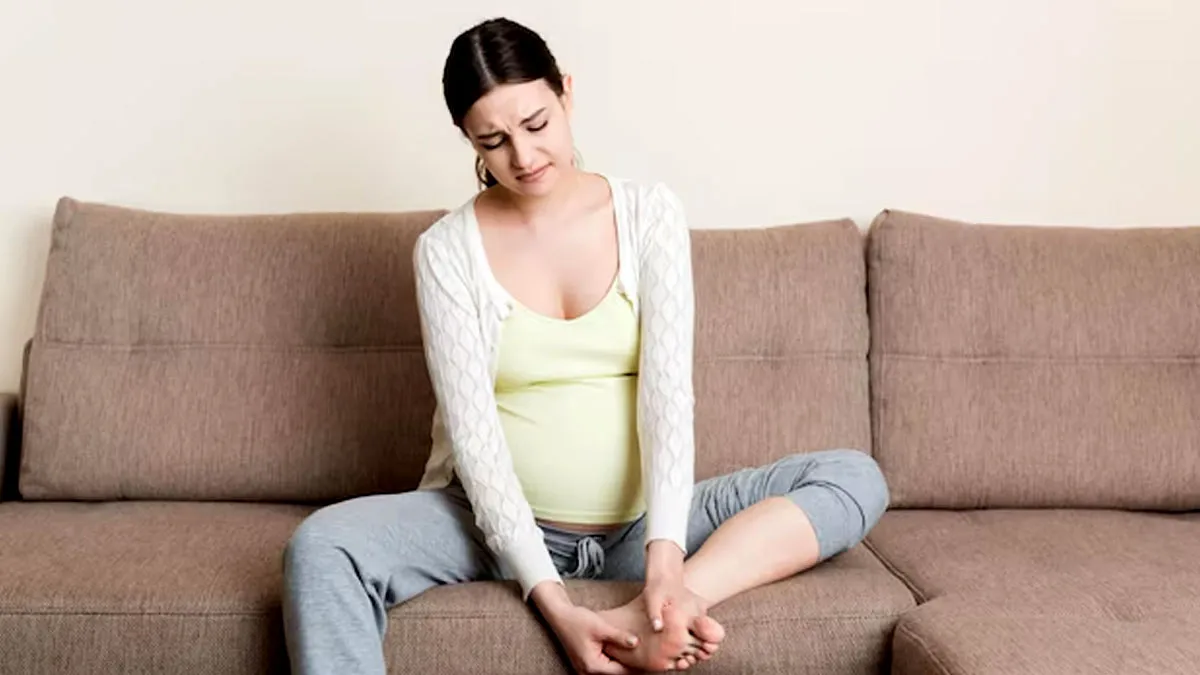
Rheumatoid Arthritis Awareness Day 2025 iobserved on February 2. Created in 2013 by the Rheumatoid Patient Foundation (RPF), the day is marked to raise awareness around the chronic autoimmune disease. Rheumatoid arthritis (RA) happens when your body's immune system starts attacking its tissues. It primarily affects the joints, resulting in pain, swelling, and stiffness. Given this, there's a pertinent question you may have: Is pregnancy possible if you have RA? Dr. Aneesa Kapadia, consultant (Rheumatology) at Jaslok Hospital & Research Centre, tells us more.
As per Dr. Aneesa Kapadia, many women with RA worry about how the condition may impact pregnancy but with proper planning and medical care, it is possible to have a healthy gestation while managing the condition.
"RA does not directly affect pregnancy, but the condition and its treatments can pose challenges. Some women experience improvements in their RA symptoms during pregnancy due to hormonal changes, while others may continue to have active disease. After delivery, however, some women experience flare-ups," she noted.
Dr. Aneesa Kapadia lists 3 key factors to consider if you have the condition and are planning to become pregnant:
Certain RA medications, like methotrexate and leflunomide, are not safe during pregnancy and need to be discontinued in advance. Your doctor may recommend switching to safer alternatives.
Don't Miss: Top 6 Foods To Avoid During Pregnancy For A Healthy Baby And Mom
Having RA under good control before conception can help reduce complications.
A well-balanced diet, rich in essential vitamins and minerals, can help prepare your body for pregnancy.
"With proper medical guidance, lifestyle adjustments, and support, many women with RA go on to have successful pregnancies and healthy babies," says Dr. Aneesa Kapadia. Given below are three ways you can ensure that:
Some medications, such as hydroxychloroquine and certain biologics, may be safe to use during pregnancy. Always discuss options with your doctor.
Gentle exercise, such as swimming or prenatal yoga, can help maintain joint flexibility and reduce stiffness.
Managing stress and getting adequate rest can help keep RA symptoms in check.
"As for complications, those with rheumatoid arthritis may face problems like preterm birth (when birth happens before 37 weeks of pregnancy), low birth weight, and high blood pressure during pregnancy," says Dr. Aneesa Kapadia.
Not just during pregnancy, women with RA can experience flare-ups after giving birth, she notes, adding, "Planning for postpartum support, including help with childcare and household tasks, can ease this transition."
Having said that, "Consulting with a healthcare provider before conception and maintaining regular prenatal care can make a significant difference in managing both RA and pregnancy," Dr. Aneesa Kapadia wraps up.
Don't Miss: Mood Swings During Pregnancy Across Trimesters & How Does It Feel?
If you liked this story, please share it. For more such articles, stay tuned to HerZindagi.
Our aim is to provide accurate, safe and expert verified information through our articles and social media handles. The remedies, advice and tips mentioned here are for general information only. Please consult your expert before trying any kind of health, beauty, life hacks or astrology related tips. For any feedback or complaint, contact us at compliant_gro@jagrannewmedia.com.